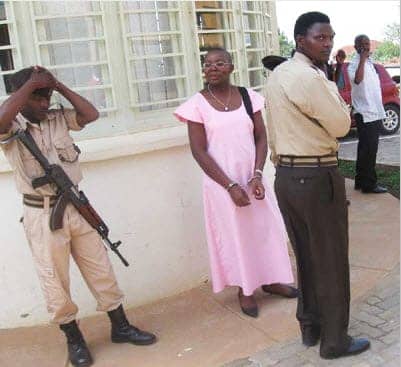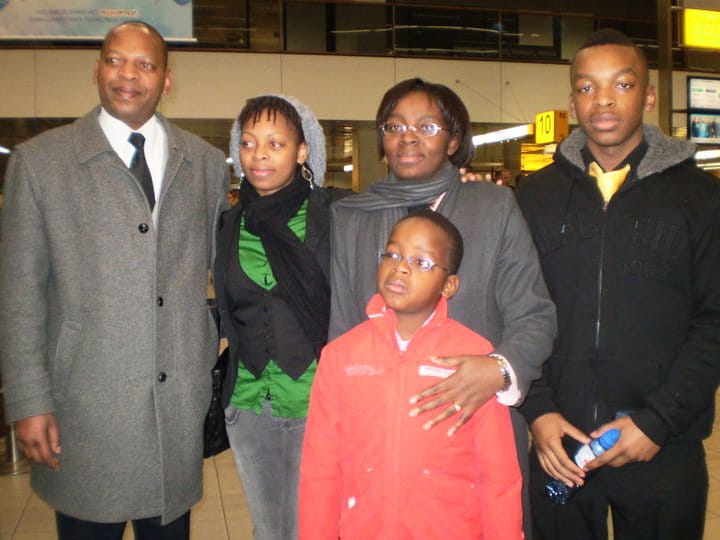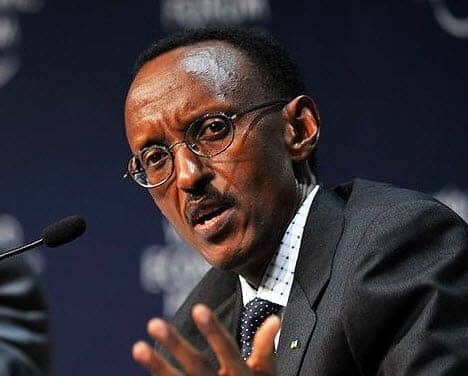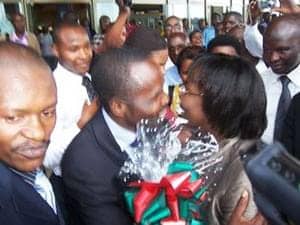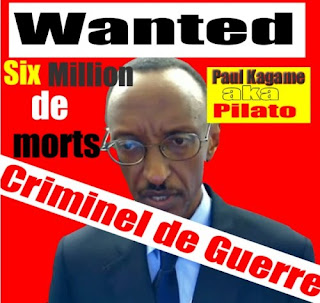Head of state and government: Paul Kagame and Bernard Makuza
Death penalty: abolitionist for all crimes
Population: 10.3 million
Life expectancy: 51.1 years
Under-5 mortality (m/f): 167/143 per 1,000
Adult literacy: 70.3 per cent
The authorities restricted freedom of expression and association before presidential elections in August. Media outlets that criticized the government were closed down and editors fled Rwanda. Human rights defenders faced intimidation. Investigations into killings were inadequate. High-ranking military officers were detained without trial. Some improvements in the justice system were offset by laws criminalizing dissent. No country extradited genocide suspects to Rwanda.
Background
A clampdown on freedom of expression and association before August’s presidential elections prevented new opposition parties from fielding candidates. President Paul Kagame was re-elected with 93 per cent of the vote.Growing splits emerged within the ruling party, the Rwandan Patriotic Front (RPF). The former head of the army, Faustin Kayumba Nyamwasa, fled to South Africa. Some senior military officers were arrested and held incommunicado. Others fled to neighbouring countries.
Tension grew between the government and supporters of Laurent Nkunda, the former leader of the Congolese armed group the National Congress for the Defence of the People (CNDP). Arrested in January 2009, he remained under house arrest in Rwanda without charge or trial.
Grenade attacks in Rwanda’s capital, Kigali, led to heightened security concerns.
Rwanda’s hostile response to a UN mapping report on human rights violations in the Democratic Republic of Congo (DRC) between 1993 and 2003 drew attention to impunity for past abuses by the Rwandan Patriotic Army.
International donors grew increasingly concerned about the deteriorating human rights situation. The EU, France, Spain, the UN and the USA publicly expressed concern before the elections.
Freedom of expression
Freedom of expression was further restricted. The RPF became increasingly sensitive to criticism in advance of the presidential elections. Laws on ‘genocide ideology’ and ‘sectarianism’The authorities continued to misuse broad and ill-defined laws on "genocide ideology" and "sectarianism". The laws prohibit hate speech, but also criminalize legitimate criticism of the government.
In April, the government announced a review of the "genocide ideology" law, and indicated that the "sectarianism" law might also be reviewed. However, the government continued to use these laws and the timeframe for review remained unclear.
- Bernard Ntaganda, the leader of an opposition party, PS-Imberakuri, was arrested in June and remained in detention in December. Charges against him included inciting ethnic division in relation to statements criticizing government policies.
- Victoire Ingabire, the leader of FDU-Inkingi, an opposition party seeking registration, was arrested in April and rearrested in October. Charges against her included "genocide ideology" and were based, in part, on her public call for the prosecution of RPF war crimes.
Journalists
The government used regulatory sanctions, restrictive laws and criminal defamation cases to close down media outlets critical of the government. In July, the government began to enforce certain aspects of a 2009 media law which maintains defamation as a criminal offence. Some leading editors and journalists fled the country after facing threats and harassment.- The Rwandan Media High Council (MHC), a regulatory body close to the ruling party, suspended two private Kinyarwanda newspapers, Umuseso and Umuvugizi, from April to October. The MHC alleged that the newspapers had insulted the President and caused trouble in the army.
- Jean-Léonard Rugambage, a journalist working for Umuvugizi, was shot dead on 24 June outside his home in Kigali. He had been investigating the shooting in South Africa of Kayumba Nyamwasa, and his newspaper published a story alleging that Rwandan intelligence was involved. In October, two men were convicted of Jean-Léonard Rugambage’s murder and sentenced to life imprisonment. The convicted men claimed that Jean-Léonard Rugambage had killed a member of one of their families during the 1994 genocide, although he had previously been acquitted in gacaca proceedings.
- Jean-Bosco Gasasira, editor of Umuvugizi and Didas Gasana, editor of Umuseso, fled Rwanda in April and May respectively after receiving threats.
Human rights defenders faced renewed threats, including from government representatives. They self-censored their work to avoid confrontation with the authorities.
The government expelled a staff member of Human Rights Watch from Rwanda. Other international NGOs reported increased constraints on their work. International human rights groups, including Amnesty International, were attacked in speeches by senior government officials.
A Rwandan government representative criticized Rwandan human rights organizations at the African Commission on Human and Peoples’ Rights in May.
Freedom of association
Restrictions on freedom of association prevented new opposition parties from contesting the elections. FDU-Inkingi and the Democratic Green Party were unable to obtain security clearance to organize meetings needed for their registration. The only new party to secure registration, PS-Imberakuri, was infiltrated by dissident members and decided not to stand.Opposition politicians were harassed and threatened. Investigations into threats were cursory and did not lead to prosecutions.
Prisoner of conscience
Charles Ntakirutinka, a former government minister, remained in Kigali Central Prison, serving a 10-year sentence due to end in 2012. He had been convicted, in an unfair trial, of inciting civil disobedience and association with criminal elements.Justice system
Witness protection staff received training and kept better records. Concerns remained about the willingness of witnesses to testify, given restrictions on freedom of expression through laws on "genocide ideology" and "sectarianism".In October, Rwanda promulgated a law on "life imprisonment with special provisions", the sentence which replaced the death penalty. The law requires prisoners to be kept in individual cells for up to 20 years, which could constitute prolonged solitary confinement for those whose family members are unwilling or unable to visit. Such prisoners would only have the right to communicate with a lawyer in the presence of a prison guard, violating their defence rights during appeal hearings and possibly preventing prisoners from reporting abuse. The sentence was not applied due to a lack of individual cells.
Prison overcrowding continued to be a problem.
The deadline to complete gacaca trials of genocide cases was postponed indefinitely in September.
Enforced disappearances
At least four individuals disappeared between March and May. Some were close to Laurent Nkunda’s wing of the CNDP or had past links to armed groups in the DRC. Their whereabouts remained unknown at the end of the year. At least one of these individuals, Robert Ndengeye Urayeneza, was believed to have been subjected to enforced disappearance and detained in Rwandan military custody.Ill-treatment by police
Some members of PS-Imberakuri and FDU-Inkingi arrested in June and July were ill-treated by the police. They were beaten and were handcuffed to other prisoners, including while going to the toilet.Military justice
Several high-ranking military officials were arrested and detained without charge. They were denied access to legal counsel and held under house arrest or incommunicado in military detention for several months.- Lt. Col. Rugigana Ngabo, the younger brother of Kayumba Nyamwasa, was arrested in August on allegations of destabilizing national security. He was held incommunicado without charge.
International justice
International Criminal Tribunal for RwandaThe mandate of the International Criminal Tribunal for Rwanda (ICTR) was extended until the end of 2011 for first-instance trials and to the end of 2012 for appeals. Ten suspects subject to arrest warrants by the ICTR remained at large. The ICTR Prosecutor made new applications in November to transfer cases to Rwanda. Past applications failed after Trial Chambers decided that the accused would not receive fair trials.
Universal jurisdiction – genocide suspects living abroad
Judicial proceedings against genocide suspects took place in Belgium, Finland, Netherlands, Spain, Switzerland, and the USA. Sweden consented to extradition in 2009, but the case has yet to be decided before the European Court of Human Rights. No country extradited genocide suspects to Rwanda due to fair trial concerns.
International Criminal Court
The Rwandan executive secretary of the Democratic Forces for the Liberation of Rwanda (FDLR), Callixte Mbarushimana, was arrested in October in France after an arrest warrant was issued by the International Criminal Court (ICC) for war crimes and crimes against humanity committed in eastern DRC in 2009. France had granted him refugee status in 2003 and French prosecuting authorities had declined to open criminal investigations into earlier allegations of his involvement in the Rwandan genocide. In November, his surrender to the ICC was ordered by the Paris Appeal Court.
Impunity for war crimes and crimes against humanity
- A Spanish judge requested the extradition of Kayumba Nyamwasa from South Africa, where he fled from Rwanda in February. He was indicted by Spain in 2008 on charges of war crimes and crimes against humanity committed in 1994, as well as the murder of three Spanish aid workers in 1997 in Rwanda. Rwanda also requested his extradition on charges of threatening state security. South Africa had not acted on either request by the end of the year.
- French magistrates conducted investigations in Rwanda in September into the shooting down of the plane in April 1994 which killed Rwandan President Juvénal Habyarimana and sparked the genocide. It was the first time that French magistrates had visited Rwanda as part of their investigations. French judges dropped international arrest warrants issued in November 2006 against nine senior RPF members for shooting down the plane, in which French nationals were also killed, and instead placed some of these individuals under investigation.
Rwandan authorities failed to adequately investigate and prosecute killings before the elections.
- André Kagwa Rwisereka, Vice President of the opposition Democratic Green Party, was found dead in Butare on 14 July. André Rwisereka, who left the RPF to create the Democratic Green Party, had been concerned for his security in the weeks before his murder. The police opened investigations, but the prosecution claimed to have insufficient evidence to press charges.
- Denis Ntare Semadwinga was stabbed to death at his home in Gisenyi on 20 June. Before his murder, he had been questioned by Rwandan security services about his relationship with Laurent Nkunda




